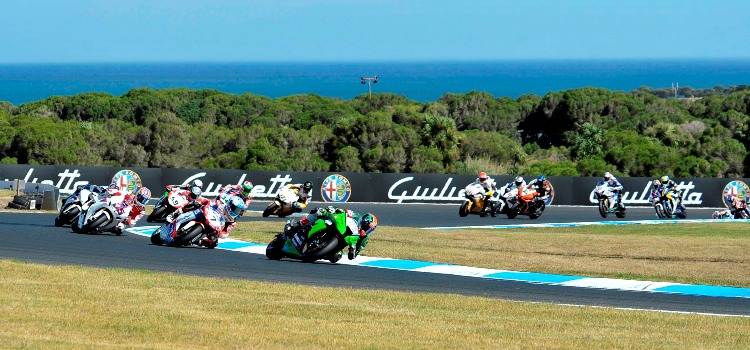First WSB round a level playing field for all
After the dust has settled on the first round of the Superbike World Championship and the majority of the teams and riders have returned to their normal European base of operations, analysis of the opening round can now begin in earnest.
Races one and two have shown that a few rule changes introduced in the winter - designed to cut costs again and still keep the class competitive - have had some desired effects already. By that we mean that all manufacturers, no matter which engine configuration they elect to use for their production machines, have already shown they will have the chance to be competitive in 2012. In fact, most have been competitive already.
Of all six manufacturers regularly involved in the series this year four of them posted podium finishes in the first weekend alone (Aprilia 2, Ducati 2, BMW 1 and Kawasaki 1). Honda only just missed out by one place and a fraction of a second in race two after Jonathan Rea spent two laps in the lead and 21 laps in a podium position before he had to submit to the final push of Tom Sykes's Kawasaki.
Aprilia and Ducati scored one fastest lap apiece in Australia, thanks to race winners Max Biaggi and Carlos Checa. Of course, the two most recent champions Checa and Biaggi are class acts who have won SBK races on more than one type of machine. In the real racing world the sheer talent and experience of certain riders will always affect results, no matter which machine they are on at any one time.
Other subjective indicators show that only time is needed or some teams and riders combos to find their fastest feet. No one in the SBK paddock thinks that Suzuki, embarking on an all-new way of going Superbike, will not find the missing engine power that stopped Leon Camier (Crescent Fixi Suzuki) from making more of an impact on raceday very soon. As his lap times at Phillip Island at one stage demonstrated, when the set-up is right his full package will also be podium ready in 2012. And as Kawasaki and Honda riders showed, a conventional four-cylinder is still a potent way to go SBK racing in general.
Traditionally SBK racing has allowed many marques the chance to compete on broadly level terms, with some tracks better for one type of machine and other tracks better for others, as is normal in any form of racing. The first evidence the 2012 season indicates that things should be no different this time around. Next stop Imola, with raceday on 1 April.









